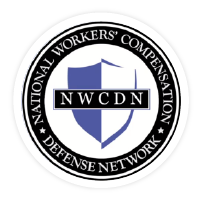Toll Free 866.995.8663
Facsimile 877.284.4034
info@lsfslaw.com


Toll Free 866.995.8663
Facsimile 877.284.4034
info@lsfslaw.com



Sometimes what the parties to a given dispute really want (and may even need), is an effective alternative to traditional litigation and/or trials. ADR stands for “alternative dispute resolution,” which is just that: a term describing alternatives to trials/hearings, usually in the form of mediation and/or arbitration.
Mediation involves the use of a neutral individual (or, on very rare occasions, multiple individuals) called a “mediator” to help broker (help negotiate) a settlement between the parties to a dispute. The dispute may be in active litigation before a court, administrative agency, or other tribunal; however, sometimes parties mediate in advance before taking any formal legal action at all concerning the dispute(s) at issue. Regardless, the process is usually the same: the mediator hears from all parties, separates them, and meets with each side individually to procure and then communicate settlement offers intended to bring about a legally-binding compromises. Mediators, unlike arbitrators (discussed below), do not render any sort of decision, binding or otherwise. However, if asked, some mediators will offer an independent opinion if he or she thinks it will help the parties resolve their differences. Mediations (ideally) end in the signing of an agreement (contract) that reduces the terms of the compromise/settlement to writing.
Arbitration, by contrast, is a true alternative to trial. When the parties cannot resolve their disagreements informally or by mediation, they may be able to agree on an individual or individuals, called arbitrators (or, less commonly, arbiters), to hear the dispute, in lieu of a judge, who will then reach a binding decision. The parties agree, in advance, to accept the decision of the arbitrator(s). That decision is sometimes filed with a court or other agency for purposes of creating a record and/or for enforcing the arbitrator’s decision. Most courts, administrative agencies, and other tribunals will respect the decisions of a truly neutral and qualified arbitrator, as this relaxes their burden (caseload) and promotes the interests of judicial economy.
With only very limited and specific exceptions, parties cannot be forced to arbitrate against their will. However, sometimes one or more parties to a contract may have signed without reading the fine print requiring arbitration of disputes. A common dispute in court is the enforceability of a clause in a contract to arbitrate future disputes. While courts do like to enforce genuine arbitration agreements, the law has placed limits in certain instances of the types of disputes that parties may agree, prospectively, to arbitrate.
Our firm regularly assists our clients in mediating and/or arbitrating lawsuits, claims, and other disputes. We can also advise you concerning the enforceability of a contractual clause to mediate/arbitrate. Barring conflicts, we are also available to mediate and/or arbitrate disputes amongst non-clients. Our attorneys have decades of experience in a wide variety of practice areas uniquely qualifying them to serve as neutrals for your ADR issue. If we do have a conflict (e.g., we have previously represented one side in a conflict), then we will happily recommend other qualified neutrals. We can also help you incorporate an ADR clause into your contract or agreement to mandate mediation and/or arbitration in lieu of (or as a precondition to) litigation or trial. Contract us today to see how we can help resolve your conflict, even before it begins.